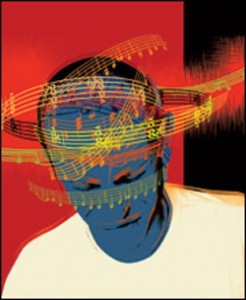I’ve written several times about the weird phenomenon of hearing noises and music in my head ever since my sudden hearing loss, and when I cited Dr. Neil Bauman’s fascinating, in-depth book on auditory hallucinations, Phantom Voices, I made a rather strong statement about the lack of research that’s been done on the subject by the traditional medical and scientific community.

None of this is news to those of us who have bought Dr. Bauman’s book and been scouring the net to connect with others who have experienced auditory hallucinations. But it’s nice to know some serious research is starting, and I would expect the New York Times story to jump-start additional research. One final note: Michael Chorost, author of Rebuilt: How Becoming Part Computer Made Me More Human, told me recently that he had experienced auditory hallucinations with his hearing loss — and in fact, like me, could even control them by “filtering” the tones to play simple songs in his head — but that they stopped when he got his cochlear implant. Another small miracle we can attribute to the amazing CI technology, and perhaps more grist for the researchers’ mill. And, as Dr. Aziz says, with more people experiencing hearing loss and with people “awash” in music in our media-saturated culture, we can expect to see more discussion of this phenomenon: “In 15 years I got 30 patients, and in less than a year I’ve had 5,” he told the New York Times. “It just tells you people are more aware of it.”